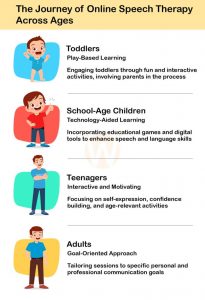What are the tips to reduce Test Anxiety?
By Prapoorna M
Last Updated: November 26, 2021
Test anxiety is mostly observed among students. Anxiety is a natural response that our body exhibits when it senses danger. Whenever we feel threatened or under pressure or may be facing a stressful situation, our body senses an alarming feeling that triggers anxiety. The pressure of studies and the expected results could trigger anxiety in students called test anxiety.
Also read: What are Unhelpful thoughts, and why do they occur?
Reducing test anxiety (general tips)
The below are the general tips to reduce test anxiety
Balance your emotions
Stressful emotions can inhibit a student’s ability to absorb, retain, and recall information. Anxiety creates a kind of noise in the brain that blocks our ability to retrieve what’s stored in memory and also greatly impairs our ability to comprehend and reason.

Refine your skills
In order to overcome test anxiety and its associated symptoms, researches have provided tools and strategies that build both emotional skills and healthy physical habits. They also improve the students’ ability to prepare for and perform on critical testing.
Be prepared
As a part of good study habits, one should be prepared well enough before the exam dates are near. Studying in smaller increments of time, before one or two weeks of exams, saves a lot. Instead of being a all-nighter, it’s better to be prepared and relax well. Try to pretend exam conditions by working through a practice test, following the same time constraints.
Maintain a positive attitude
Always remember that a test grade should never define your self-worth. Never compare your worth with any of your academic skills. Creating a system of rewards and reasonable expectations for studying can help to produce effective studying habits. Negative thinking has no benefits.
Stay focused
Focus and concentrate on what you need to write and think. Try to make most use of the time. Don’t bother about the hard work of remaining students during your examinations. Also, try not to talk to other students about the subject material before taking an exam.
Read more: How to reduce exam anxiety
Reducing test anxiety behaviorally
Eat proper meals regularly
Oftentimes people suffering from anxiety have trouble eating and skip meals. But the fact is that, hunger can make your anxiety worse. Hunger will also starve your brain of nutrients and this won’t let you to focus on anything. Eat at least three balanced meals every day to keep your strength up. Make sure your meals are nutritious to provide you with a sustained release of energy that will carry you through your study session.
Get plenty of sleep
Sleep deprivation is another cause of anxiety. Commit to getting a full 8 hours of sleep every night. Most students tend to be an “all-nighter” during exams to keep the brain active. But this would strain your body much and make the brain inactive during your exam. Having a good sleep of 8 hours will ensure that your brain has been properly rested and you can start studying with a fresh mind.
Stretch your muscles
Anxiety often causes muscles to tense up, particularly those in the upper back and neck. This will cause pain and discomfort, inhibiting your ability to concentrate. During your breaks, make sure you stretch any muscles that feel tight. This gives you physical relief as well as reducing your anxiety levels.
Try meditation
Meditation is the best pill for the people suffering from anxiety. As meditation is designed to relax your mind and body, it helps a lot in the reduction of your anxiety. If you’re feeling anxious preparing for a test, schedule in some meditation time.
Avoid people who generate anxiety when studying
You might have certain friends that also suffer from test anxiety and always vocalize their fears. This doesn’t mean you can’t be friends with them, but it might be best to avoid them while you’re trying to study. You might be making a good effort to reduce your own anxiety, and allowing their negative thoughts to overcome, could set you back.
Exercise Aerobically
Having an aerobic exercise is more of a lifestyle than a practical on-site method. This helps reducing general stress and even improves your health. Do some form of exercise that elevates your heart rate. It should be something you enjoy, and that you can do at least three times a week. Aerobic exercise includes cycling, running, swimming, and tennis just to name a few.

Reducing test anxiety emotionally
Focus on positive aspects
Try to focus on past testing successes. Learn from past failures, but don’t dwell on them. Consider what you did differently to prepare for tests on which you were successful versus tests that went poorly. Repeat those actions that made you successful and alter those that resulted in failure. Generate a list of your positive qualities and remind yourself of them by posting them in your room or repeating them to yourself from time to time. Then make a more specific list of the positive aspects of your exam preparation. Repeat them to yourself when you feel anxious. Ignore negative comments from classmates, especially while waiting for the exam. Realize that these students are negative because they, unlike you, are unprepared.
Think about your cognitive state
Anxiety often impairs your concentration and leaves you blank. If you’re trying to study but just can’t bring yourself to focus, you could be suffering from anxiety. Procrastination is also a symptom, since avoidance of a problem is a defense mechanism. If you notice these symptoms, it is time to take action and work on your thought processes.
Check your thought patterns
Often when people suffer from anxiety, they focus on overwhelmingly negative thoughts. You may say to yourself “I’m definitely going to fail this test,” or “If I fail this test my life is over.” These thinking traps can cause greater anxiety. If you find yourself thinking this way about a test, you certainly need to take some steps to address and remedy those thoughts.
Analyze negative thoughts
When a negative thought enters your head, give a temporary sudden break to what you’re doing and think about it. By breaking down negative thoughts, you can find that most of them are unrealistic, and then replace them with more positive thoughts. There is no logical way a test will result in your life ending and hence this is an unrealistic fear. Your thoughts should be more balanced, basing on facts, not feelings.
For example: While you are facing a math test, there might be several thoughts crossing your mind that could cause anxiety, but a more balanced thought could be: “There is a chance that I will not pass the math test tomorrow. But, not passing a math test does not mean I will fail the entire class. Even if I don’t pass the test, it doesn’t mean I will never graduate from high school. I have passed many school assignments and tests before.” This reduces your anxiety to a great level.
Put negative thoughts in perspective
When many negative thoughts are put in real-world perspective, they
don’t seem so serious. For example, you’re convinced that you will fail the biology test tomorrow. But you’ve gotten good grades on every biology test this year so far. Past experience is on your side here. This new perspective
makes your fear seem more unlikely, since you’ve already established that you’re good at biology.
Replace illogical thoughts with logical ones
Fear is illogical. Replacing illogical thoughts with a more balanced and logical thought will bring your mind back to reality and help break down illogical fears. Isolating the thought of “I will certainly fail” and replacing it with some positive thoughts would do wonders. Replace such negative thought with “I’ve been studying a lot for this exam since last week. I got a good hold on the material. It’s within my abilities to write the exam well”. When you have a logical reason to why you can write the exam well and when you can believe that you actually “read” the material with concentration that fear of failure just washes off. This breaks down your fear that was based on nothing, and replaces it with a new thought that is rooted in reality.

Identify your thoughts
Identify the thoughts that you are going through while feeling anxious.
Take time for yourself and observe the pattern and levels of your anxiety. Pay attention to your shifts in anxiety, no matter how small. When you notice the changes of increased anxiety, just ask the below three questions to yourself.
- ‘What am I thinking right now?’
- ‘What is making me feel anxious?’
- ‘What bad thing do I expect to happen?
This process gives you clear reasons if you have to feel anxious at all.
Use positive self-statements
Negative self-statements like “I’m stupid or “I’m worthless” can easily
cause your anxiety to progress into depression and threaten your overall psychological health. Replace negative statements with positive ones. Keep saying positive statements to yourself, like the below ones. - I’m Smart
- I just wonder how I improved
- I’m good enough to handle this
- I can do this
- I’m a successful person
- I’m always confident
- Everything will be okay
- I’m grateful for what I have
- I will accomplish the task I choose to do
In this way, the negative statements can be cut out of your thinking and
your happiness and psychological health can be improved.
Coping statements
Keep reminding yourself that you can cope with situations better, by coming up with such statements. For example: “If I get anxious, I will try some calm breathing.” “I just need to do my best.” “This has happened before and I know how to handle it.” “My anxiety won’t last forever.” Avoid self-criticism: Regularly practice being ‘kind’ to yourself (say positive things about yourself), rather than being overly self-critical.
We at Wellness Hub offer all the kind of counselling services like online counseling and offline counselling for any kind of psychological issues. Book an appointment today!!
Book your Free Consultation Today
Parent/Caregiver Info:
Client’s Details:
* Error Message









